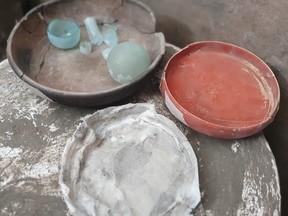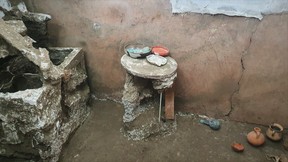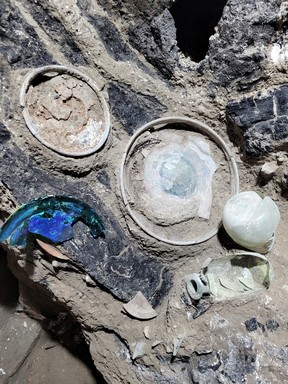Article author:

Milan— Archaeologists have discovered four new rooms in Pompeii's house, filled with plates, amphibians, and other daily necessities. This shows a snapshot of middle-class life at the moment the eruption of Mount Vesuvius filled the Roman city in 79 AD.
According to Pompeii Archaeological Park authorities, on the second floor of a previously excavated building, the shape of a bowl wreckage, a rushed empty trunk, a bed, and a crib I found a terracotta perfume burner.
Some were more valuable than others – a container made of bronze or glass next to everyday utensils.

"Most of the population is the Roman Empire , Who sweated for their daily bread, but were also anxious to improve their social status, "said Park Director Gabriel Zuktrigel.
Archaeologists took a plaster mold and recreated several objects from the ruins of Pompeii, one of Italy's main tourist attractions near the modern city of Naples.

Remaining buildings 2018 Includes a courtyard decorated with frescoes of plants, birds and hunting scenes. The guardian deity of the house, or the niche that hosts Lares, gave the "Lalario House" its nickname.
"The owner of the Lalario house in Pompeii was able to decorate the courtyard hosting the ruins and wells of Lares with wonderful paintings, but apparently not all the rooms had enough money. I did, "added Zuchtriegel.
"I don't know who lived here, but the fun life depicted in the courtyard was probably more aspirational than their everyday reality."

From the newsroom to the noon inbox, Toronto Sun's latest headlines, stories, opinions and photos. By clicking the
Thank you for signing up.
A welcome email has been sent. If you don't see it, check your junk folder. The next issue of
Your Midday Sun will arrive in your inbox shortly.


